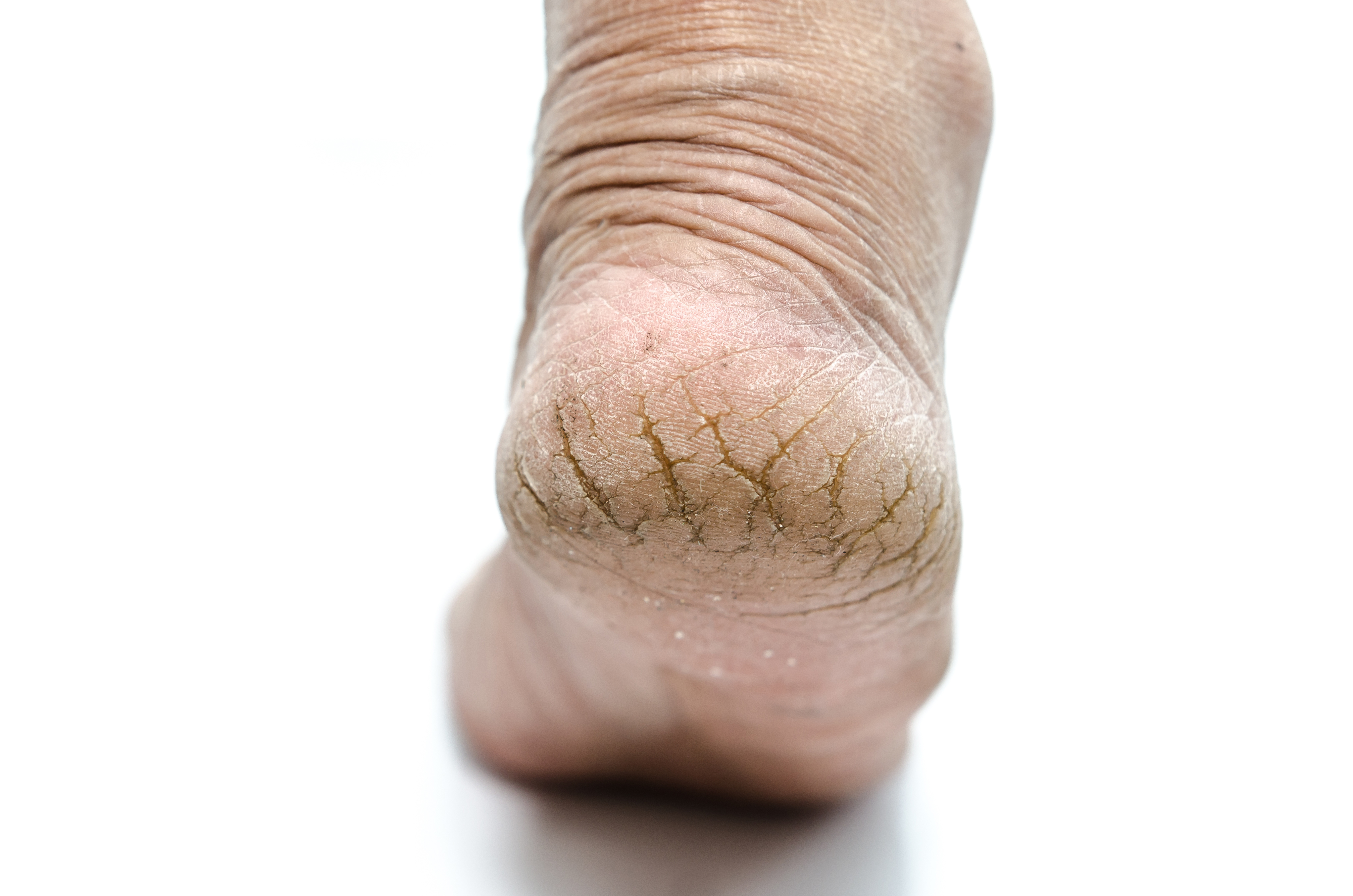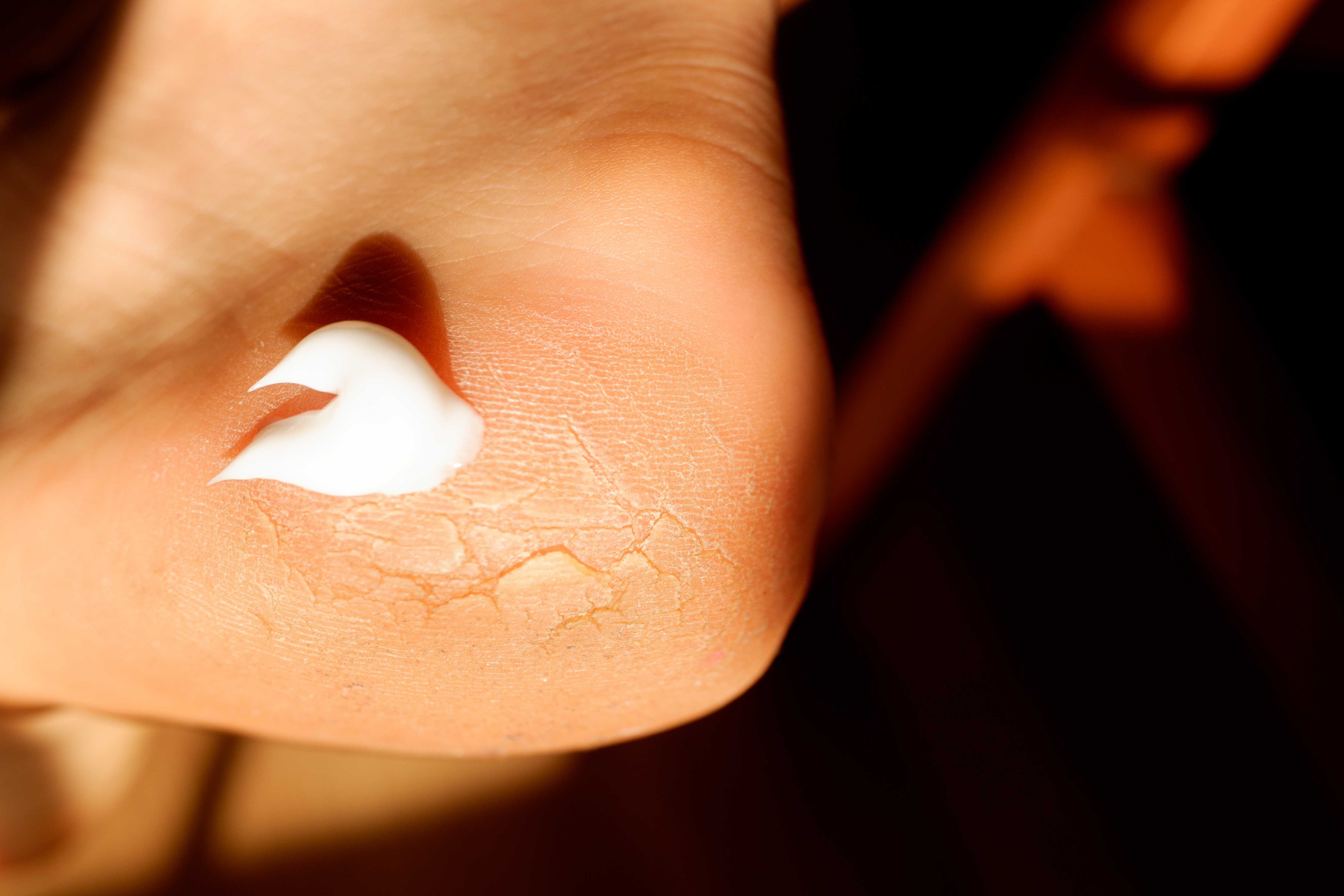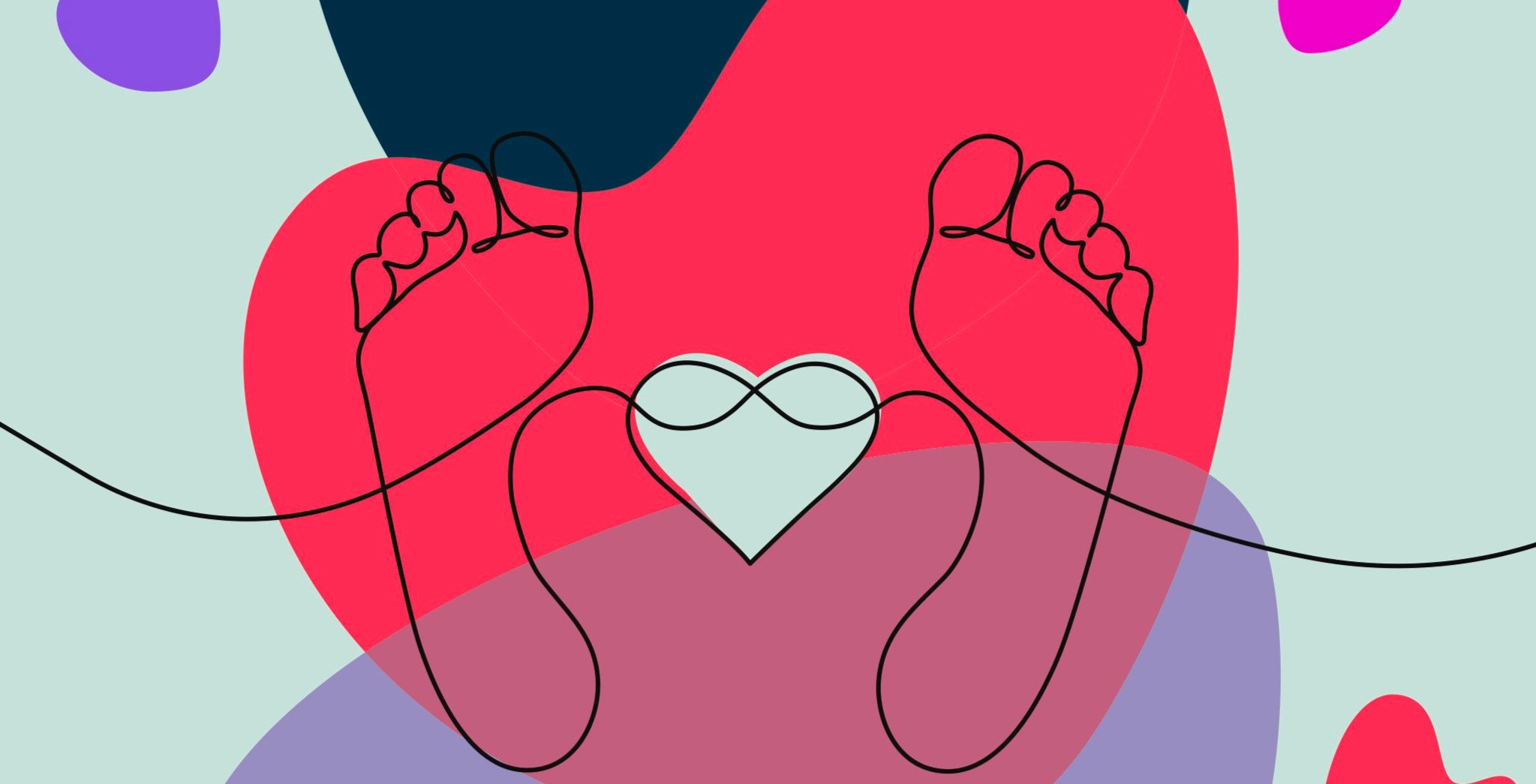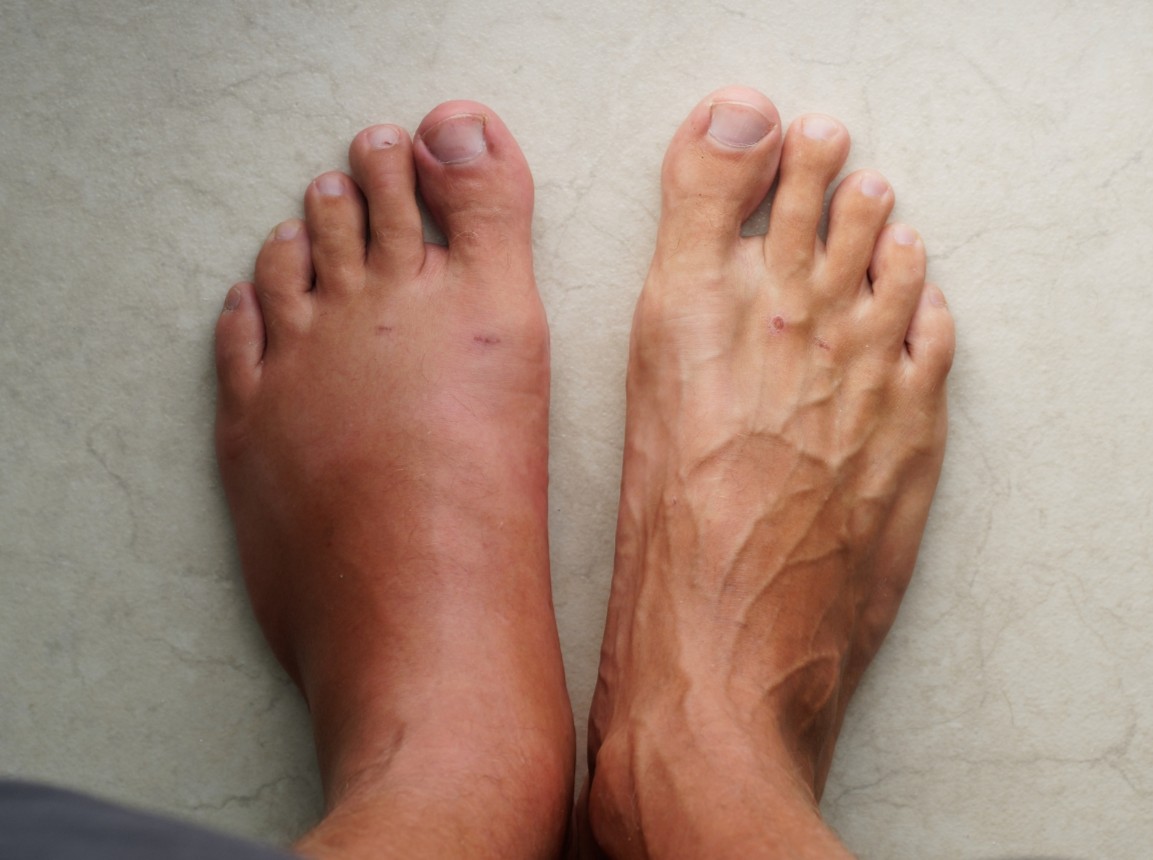Cracked heels describe the little cracks that occur around your heels after they have built up with dry skin (callus). Cracked heels affect the outer layer of the skin (epidermis). They can be uncomfortable, frustrating and sometimes painful if the cracks are deep enough to crack into the healthy skin beneath the callus (dermis).
The first step in getting cracked heels is getting a build up of dry skin (callus)
around your heels. Callus often occurs as a result of excessive force and pressure through an area of the skin, which in this case is the
heels. Various causes include:

Building up callus is a natural body process to protect areas of the skin that are under a lot of pressure and at a high risk of damage. When the callus loses a lot of moisture and is subject to pressure, cracks form.
Aside from the obvious cracks in the callus around you heals, you may experience:
Another cause of itchy, dry-looking feet can be Athlete’s Foot – click here to learn more.

Cracks in the dry skin can also crack the healthy skin beneath the callus. This will cause it to bleed and become painful. It will also be very vulnerable to infection, as the cracks can easily trap dirt and bacteria and be difficult to clean. We’re able to treat and manage your cracked heels safely and effectively. We can:
Moisturising your heels daily can help with cracks. Improving circulation to the feet can help heal cracks and discourage them from recurring. If cracks or deep fissures are persistent, a diet lacking proper nutrients may be the culprit. Your Podiatrist will be able to give you the best advice and treatment plan that is specific to your symptoms. We remove thick, hard cracks from the heels in our medical pedicure and skin and nail care appointments.

Valentine’s Day is about love, appreciation, and thoughtful gestures but let’s be honest, most gifts don’t last longer than a week. This year, choose something different. Choose a gift that offers comfort, confidence, and real care: a Medical Pedicure.

We’ve all had those days — you come home after hours on your feet, kick off your shoes, and notice your ankles look puffier than usual.
Swelling in the feet, ankles, or legs (known medically as edema) isn’t always a reason to panic. It can be as simple as a
salty lunch or a long flight.
But what if it’s happening more often — or seems to be getting worse? Swelling can sometimes be a sign of something more serious. Here’s
what could be going on and when to check in with your doctor.
Keeping your family on their feet and helping them to walk, run, play and exceed their goals is why we love getting up in the morning.
Ground Floor, One Health Building
122 Remuera Rd, Remuera
Auckland 1050, New Zealand
| MON - FRI | 7:30am – 6:30pm |
| SAT | 8:30am – 4:30pm |
| SUN | Some availability |
Make an Appointment
Online Schedule
Our virtual receptionist is available 24/7 to help with general questions, booking requests, and clinic information, even when our team is busy, or it's after hours.
Whether you're calling us or using our website, you'll get fast assistance any time of day. And if your query needs a personal touch, a member of our team will follow up as soon as possible.
If you’d like to see a podiatrist who speaks your preferred language, just give us a call and we’ll help you book.